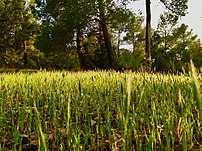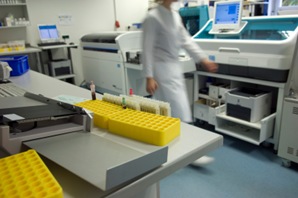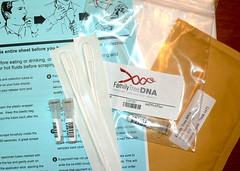
Image via Wikipedia
I received the following press release today from SMGF:
SALT LAKE CITY (Dec. 30, 2008)—Genetic research by the Sorenson Molecular Genealogy Foundation (SMGF) and scientists from ten organizations in Europe and the U.S. shows human groups with the deepest roots in southeastern Europe were not pushed out by an incoming wave of farmer-colonists as agriculture first spread into Europe. Instead, indigenous Europeans with a hunting and gathering lifestyle adopted agriculture when it was introduced by settlers from the Middle East. The study was published in the Dec. 24, 2008 online issue of European Journal of Human Genetics.
Scientists have long debated the question of how agriculture spread into Europe from its birthplace in the Fertile Crescent region of the Middle East. But the evidence—primarily archaeological—is inconclusive.
 The Virginia Commonwealth University Life Science Center has released the results of the
The Virginia Commonwealth University Life Science Center has released the results of the 


